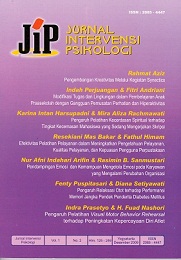Main Article Content
Abstract
This study was aimed to study the influence of service training can improve the knowledge, service quality, and the library user satisfaction. This study was conducted at state university libraries. This study was conducted by administrating quasi-experimentation towards two library groups. The experiment group (18 subjects) was given service training and measured before and after the training. The controlled group (20 subjects) was measured without training. The service training will be given at the end of this research process. The measurement of the knowledge on service to the librarian and the employees were arranged according to the material of service training, white the library user satisfaction was conducted to the experiment group (30 respondents) and the controlled group (29 respondents), The result of the mixed-anova analysis shows that (1) there is an intercorrelation between knowledge on service variable and observed group with F = 51,521 and p < 0.01. (2) there is an intercorrelation between variable service quality and observed group with F = 40,776 and p < 0.01, whereas in user satisfaction there is an intercorrelation between user satisfaction variable and observed group with F = 40,776 andp < 0.01.
Keywords: Service Training, service quality, librarian.
Article Details
Authors who publish with this journal agree to the following terms:
- Authors retain copyright and grant the journal right of first publication with the work simultaneously licensed under a Creative Commons Attribution-ShareAlike 4.0 International License that allows others to share the work with an acknowledgment of the work's authorship and initial publication in this journal.
- Authors are able to enter into separate, additional contractual arrangements for the non-exclusive distribution of the journal's published version of the work (e.g., post it to an institutional repository or publish it in a book), with an acknowledgment of its initial publication in this journal.
- Authors are permitted and encouraged to post their work online (e.g., in institutional repositories or on their website) prior to and during the submission process, as it can lead to productive exchanges, as well as earlier and greater citation of published work (See The Effect of Open Access).




